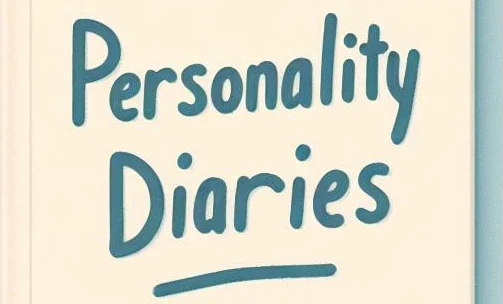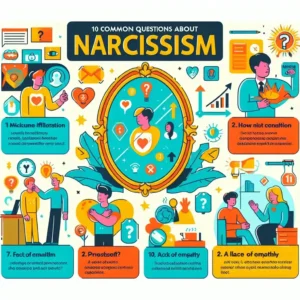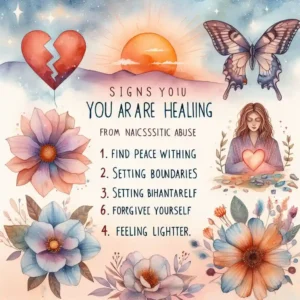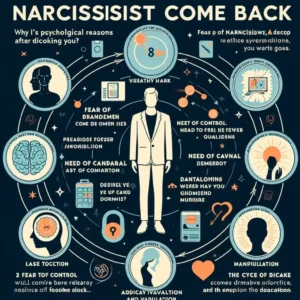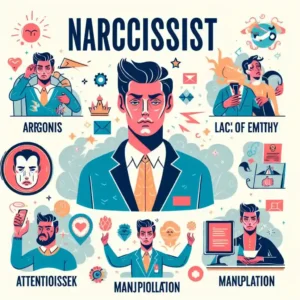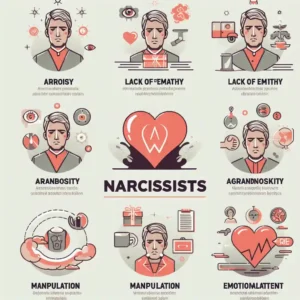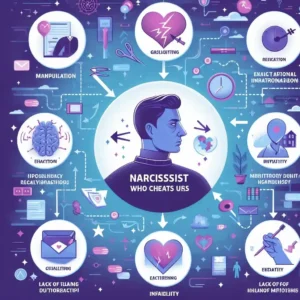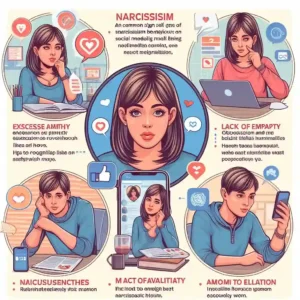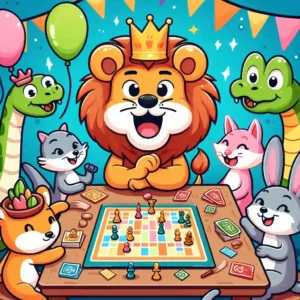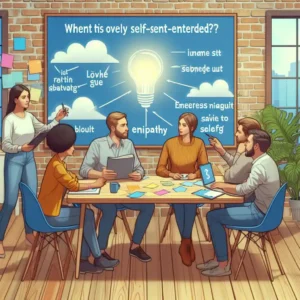As you consider the possibility of a narcissist being faithful, you might wonder if it’s even possible for someone with an inflated sense of self-importance to prioritize their partner’s feelings over their own desires.
Can a person who constantly craves validation and admiration truly commit to one person? It’s a question that gets to the heart of what it means to be in a relationship with a narcissist.
As you explore this complex issue, you’ll begin to uncover the underlying dynamics that drive a narcissist’s behavior – and whether faithfulness is even a realistic expectation.
In a Nutshell

- Narcissists’ grandiose sense of self-importance often fuels a tendency to engage in infidelity, as they crave constant validation and admiration from multiple sources.
- Their flawed morals allow them to rationalize their infidelity, convincing themselves that they’re not doing anything wrong, and may even blame their partner for not meeting their needs.
- Lack of empathy makes it impossible for narcissists to truly understand or care about the pain they’ve caused through infidelity, making faithful relationships challenging.
- Conditional commitment based on self-interest rather than mutual love and respect can lead narcissists to renege on their commitments, including monogamy, when it no longer serves their interests.
Understanding Narcissistic Behavior
You’ve likely encountered someone who consistently prioritizes their own needs and desires over yours, leaving you feeling drained, confused, and wondering what you’re doing wrong.
This behavior is a hallmark of narcissistic tendencies, where the individual’s self-importance and lack of empathy dominate their interactions with others.
To understand why you’re drawn to such people or why they’re drawn to you, examining your own motivations is crucial.
Take a step back and examine the dynamics of your relationships.
Ask yourself: Do you often feel like you’re walking on eggshells, trying to avoid conflict or rejection? Do you constantly seek approval or validation from the other person?
Recognizing these patterns can help you identify whether you’re dealing with someone who exhibits narcissistic tendencies.
The Need for Constant Validation
As you explore the need for constant validation in a narcissist, you’ll notice they’re driven by an insatiable desire for external approval, praise, and admiration.
This craving stems from an underlying insecurity that fuels their need for constant reassurance, making it difficult for them to feel secure in their relationships.
You’ll see this play out in their behavior as they constantly seek validation from others to feed their ego and maintain a sense of self-worth.
External Approval Addiction
One of the most pervasive hallmarks of narcissistic behavior is the relentless pursuit of external validation, which can lead to an addiction-like dependency on constant approval from others.
You may find yourself constantly seeking likes, comments, and followers on social media to feel worthy and important. This online validation becomes a never-ending quest, as you crave the temporary high it provides. But beneath the surface, you’re trapped in a cycle of self-doubt and insecurity.
You may post selfies, accomplishments, or witty one-liners, hoping to receive instant gratification from your online community. But the validation you receive is fleeting, leaving you craving more.
This constant need for external approval can lead to an addiction, where you sacrifice your autonomy and self-worth for the sake of online fame. You begin to shape your identity around the opinions of others, rather than cultivating a sense of self-acceptance and self-love.
Crucial to acknowledge is that you must recognize this pattern and break free from the shackles of external validation. By doing so, you can reclaim your autonomy and develop a more authentic sense of self-worth.
Insatiable Ego Hunger
Constantly craving admiration and recognition, narcissists exhibit an insatiable ego hunger that drives them to seek constant validation, perpetuating a vicious cycle of self-aggrandizement and low self-esteem.
You may find yourself constantly trying to feed their need for ego validation, but it’s like pouring water into a bottomless pit – it’s never enough.
This insatiable hunger stems from a deep-seated insecurity, a sense of inadequacy that they desperately try to compensate for by seeking external validation.
In their quest for self-worth exploration, they may become overly reliant on others for validation, constantly seeking reassurance that they’re worthy and lovable.
However, this constant need for external validation only serves to reinforce their low self-esteem, as they become trapped in a cycle of seeking validation from others rather than finding it within themselves.
Crucial to acknowledge is that their ego hunger isn’t your responsibility to satiate, and that true freedom lies in setting boundaries and not getting entangled in their validation-seeking games.
Constant Praise Craving
You’ll soon realize that their insatiable ego hunger manifests in a constant praise craving, where they expect you to provide a steady stream of validation and admiration to feed their self-worth.
This praise fixation is a never-ending cycle, as they’re constantly seeking reassurance that they’re exceptional, talented, and superior.
You might find yourself exhausted from constantly showering them with compliments, only to have them hunger for more.
Their ego inflation is directly tied to the praise they receive.
The more you praise, the more they’ll crave.
They’ll fish for compliments, manipulate situations to receive admiration, and become irritable if their expectations aren’t met.
This constant need for validation creates an unhealthy dynamic, where you’re forced to prioritize their ego over your own needs and well-being.
Inflated Sense of Self-Importance
Your narcissistic partner‘s grandiose statements and exaggerated achievements often serve as a shield to mask their deep-seated insecurities.
Behind the façade of confidence and superiority, they’re struggling to validate their self-worth. You might be drawn to their superior charisma, but vital to recognize it as a coping mechanism.
Their self-absorption dynamics are designed to make them appear more impressive, more accomplished, and more deserving of admiration.
As you navigate the relationship, you’ll notice how they constantly seek validation and attention.
They might dominate conversations, interrupt others, or belittle your achievements to assert their superiority.
Don’t be surprised if they exaggerate their accomplishments or fabricate stories to impress you.
Paramount to maintain a critical perspective and not get swept away by their grandiose claims.
Difficulty With Emotional Intimacy
Their fear of emotional vulnerability and genuine connection leads them to establish a sense of control in relationships, making true emotional intimacy a significant challenge. You may find that they prioritize superficial connections over meaningful ones, keeping you at arm’s length. This intimacy avoidance stems from their emotional unavailability, making it difficult for them to open up and be vulnerable.
As a result, you may feel like you’re not truly seen or heard in the relationship. They might use charm or charisma to distract from their lack of emotional depth, leaving you feeling unfulfilled. Their need for control can also lead to manipulation, making you feel like you’re walking on eggshells to avoid conflict.
You may try to get close, but they’ll subtly push you away or change the subject when conversations get too personal. This can be frustrating and confusing, leaving you wondering if you’re the problem. Remember, it’s not you – it’s their difficulty with emotional intimacy. Recognizing this pattern can help you set boundaries and prioritize your own emotional well-being.
Fear of Abandonment and Rejection
When you’re in a relationship with a narcissist, you may notice that they’ve an intense fear of abandonment and rejection.
This fear stems from a deep-seated insecurity, which can manifest in different ways, such as a need for constant reassurance or an obsession with being alone.
As you explore this fear, you’ll find that it’s rooted in a panic of losing control and a fear of being left behind.
Root of Insecurity
Fear of abandonment and rejection, deeply ingrained in the narcissist’s psyche, fuels their insecurities and drives their need for constant validation.
You might wonder why this fear is so pervasive in narcissists. The answer lies in their childhood experiences. Often, narcissists have experienced child abandonment or parental neglect, which led to feelings of rejection and inadequacy. As a result, they developed a deep-seated fear of being abandoned or rejected by others.
This fear is constantly triggered in their adult relationships, causing them to seek constant reassurance and validation from their partners.
You might notice that narcissists become overly attached or clingy in their relationships. This is because they’re trying to compensate for the lack of attachment they experienced in their childhood. They may also engage in manipulative behaviors to guarantee their partner stays with them, as they’re terrified of being abandoned.
Understanding the root of their insecurity can help you navigate their behavior, but it’s vital to remember that their fear of abandonment isn’t your responsibility to rectify.
Fear of Being Alone
You’re likely to notice that narcissists have an intense aversion to being alone, which stems from their deep-seated fear of abandonment and rejection.
This phobia drives them to seek constant validation and attention from others, often at any cost. They’ll go to great lengths to avoid spending lonely nights, where their solitude anxiety can spiral out of control.
When left to their own devices, narcissists can become overwhelmed by feelings of inadequacy and insignificance.
Their mind starts to race with negative thoughts, and they may even experience panic attacks or anxiety episodes. This fear of being alone is closely tied to their need for admiration and affirmation.
Without an audience to validate their existence, they feel like they’re disappearing into thin air.
As a result, narcissists often engage in people-pleasing behaviors, sacrificing their own needs and desires to keep others around.
They may also become clingy or overly dependent on their partners, fearing that if they’re not constantly reassured, they’ll be abandoned or rejected.
Panic of Losing Control
Losing control of their relationships triggers a primal panic in narcissists, as they’re convinced that abandonment and rejection are always lurking around the corner, waiting to pounce. You see, to them, relationships are a power struggle, and they must maintain the upper hand at all costs.
The fear of losing control sparks a intense fear response, driving them to manipulate and dominate their partners.
This panic is deeply rooted in their deep-seated insecurity and low self-esteem. They’re terrified that if they’re not in control, they’ll be abandoned or rejected.
This fear is so overwhelming that it can lead them to become overly possessive, jealous, and controlling. They might even resort to gaslighting, emotional blackmail, or other forms of psychological manipulation to keep their partner in line.
It’s essential to recognize that this panic isn’t about you or your worth; it’s about the narcissist’s own fears and insecurities.
Don’t internalize their behavior or take it as a reflection of your value. Instead, focus on setting boundaries and maintaining your autonomy in the relationship.
Can Narcissists Form Healthy Attachments
One fundamental question in understanding narcissistic behavior is whether narcissists can form healthy attachments with others. As you explore this question, you may wonder if it’s possible for someone with narcissistic tendencies to form secure bonds with others.
The answer lies in understanding the nature of narcissistic attachments.
Narcissists often form shallow relationships that lack emotional depth, making it challenging for them to form authentic connections.
Narcissists may struggle with emotional intimacy, making it difficult for them to open up and be vulnerable with others.
Narcissists often use relationships to feed their need for control and admiration, rather than seeking mutual understanding and support.
Narcissists often have a deep-seated fear of abandonment, which can lead to clingy or possessive behavior.
While it’s not impossible for narcissists to form healthy attachments, recognizing the challenges they may face in doing so is crucial. By understanding these dynamics, you can better navigate relationships with narcissistic individuals and prioritize your own emotional well-being.
Grandiosity and Infidelity
Narcissists’ grandiose sense of self-importance often fuels a tendency to engage in infidelity, as they crave constant validation and admiration from multiple sources to feed their insatiable ego.
You may find yourself wondering how someone so charming and confident can so easily betray your trust.
The truth is, their grandiosity creates unrealistic expectations about what they deserve in relationships.
They believe they’re entitled to multiple partners, admiration, and attention, and that you should be grateful to be with them.
Their flawed morals allow them to rationalize their infidelity, convincing themselves that they’re not doing anything wrong.
They might even blame you for not meeting their needs or being insufficient in some way.
It’s crucial to acknowledge that their behavior isn’t a reflection of your worth or the quality of your relationship.
Rather, it’s a symptom of their own psychological disorder.
Understanding this can help you break free from the toxic cycle of narcissistic abuse and focus on building a healthier, more fulfilling relationship with someone who values honesty and integrity.
Lack of Empathy in Relationships
As you struggle to reconcile the grandiosity of your partner’s infidelity with the reality of their actions, you may begin to realize that their lack of empathy is a fundamental aspect of their narcissistic nature, making it impossible for them to truly understand or care about the pain they’ve caused you.
This emotional numbness is a hallmark of narcissistic relationships, leaving you feeling unheard, unseen, and unvalued. You may have mistakenly attributed their lack of emotional response to being ‘strong’ or ‘tough,’ but in reality, it’s a sign of their shallow connections with others.
No remorse: Your partner shows no genuine regret or apology for their actions, even when confronted with evidence.
Emotional dismissal: They downplay or minimize your feelings, making you feel like you’re overreacting.
Self-centeredness: Conversations always revolve around their needs, desires, and accomplishments, leaving you feeling drained and ignored.
No emotional intimacy: You feel like you’re not truly seen or understood, even in intimate moments.
Manipulation and Gaslighting
Can you trust your own perceptions when your partner consistently rewrites history, denies previous agreements, or tells you that you’re overreacting to their hurtful behavior?
This is a classic sign of gaslighting, a manipulation tactic used by narcissists to control and dominate their partners. They’ll make you question your own sanity, eroding your self-confidence and making you more dependent on them.
Love bombing, where they shower you with excessive attention and affection in the early stages of the relationship, is another emotional hook they use to reel you in. But once you’re hooked, they’ll start to pull back, making you feel like you’re the one who’s crazy for expecting consistency.
They’ll deny previous agreements or conversations, making you doubt your own memory and perception.
Don’t be fooled. Recognize these tactics for what they are – attempts to manipulate and control you.
Take back your power by trusting your own instincts and perceptions. Don’t let them make you feel like you’re the problem.
You deserve to be in a relationship where you’re respected, heard, and valued.
Selfishness and Commitment
As you explore the complexities of a narcissist’s relationships, you’ll notice that their selfishness often takes center stage, making commitment a constant challenge.
You may wonder how someone so focused on their own needs can even consider loyalty, but that’s exactly what you’re about to find out.
Let’s break down the dynamics of ‘me, myself, and I,’ commitment phobia, and how loyalty gets redefined in the world of narcissism.
Me, Myself, and I
Your natural inclination towards self-preservation often leads you to prioritize your own needs over your partner’s, making commitment a constant balancing act between nurturing your own identity and merging with someone else. This selfish tendency can create tension in relationships, as your partner may feel neglected or overshadowed by your own desires. However, recognizing this inclination can be the first step towards growth and compromise.
- You consistently put your own needs first, leaving your partner’s feelings and desires unconsidered.
- You struggle to listen actively, often interrupting or dismissing your partner’s concerns.
- You prioritize personal freedom over compromise, resisting changes that might benefit the relationship.
- You have a hard time apologizing, instead shifting blame or justifying your actions.
Through self-reflection and a willingness to acknowledge your selfish tendencies, you can begin to work on finding a balance between personal growth and commitment. By recognizing areas where you can improve, you can take the first steps towards a more harmonious and fulfilling relationship.
Commitment Phobia
You often find yourself hesitant to commit fully to a relationship, fearing that it will stifle your personal growth and autonomy. This fear triggers commitment anxiety, causing you to question whether settling down is worth the potential loss of independence. As a result, you may find yourself constantly weighing the pros and cons of commitment, wondering if it’s worth sacrificing your freedom.
This ambivalence stems from a deep-seated fear of being trapped or suffocated by a partner. You may worry that committing to someone will mean giving up your own desires, interests, and goals. This fear is exacerbated when you’re with someone who’s overly clingy or demanding, making you feel like you’re losing yourself in the process.
To overcome this commitment phobia, it’s vital to acknowledge that healthy relationships don’t require sacrificing your autonomy. In fact, a supportive partner can enhance your personal growth and freedom. By communicating your fears and needs with your partner, you can work together to build a relationship that prioritizes mutual respect, trust, and independence.
Loyalty Redefined
When you’re in a relationship with a narcissist, you may find that their loyalty is often redefined to prioritize self-interest over commitment, leading to a grey area where selfish desires are justified as necessary for personal growth. This redefined loyalty can be confusing and may leave you questioning their faithful intentions.
- Justifying selfishness: They rationalize their selfish behavior as necessary for their personal growth or success, even if it hurts you.
- Conditional commitment: They commit to the relationship only as long as it serves their interests or provides them with benefits.
- Prioritizing self-needs: They prioritize their own needs and desires over yours, even if it means sacrificing your feelings or well-being.
- Redefining boundaries: They redefine the boundaries of the relationship to accommodate their own desires, without considering your needs or feelings.
The Role of Supply in Infidelity
Their supply’s constant availability and attention can fuel a narcissist’s sense of entitlement, leading them to engage in infidelity as a means of self-validation.
You might wonder why someone who’s a devoted partner would still cheat. The answer lies in the narcissist’s insatiable need for supply sources. They crave external validation to feel worthy, and their partner’s attention is just one source of supply.
If you’re in a relationship with a narcissist, you might unintentionally enable their infidelity by being overly accommodating or sacrificing your own needs to keep them happy. This can create an environment where they feel justified in seeking validation elsewhere, as they believe they deserve it.
Infidelity triggers can be subtle, such as a compliment from a stranger or a social media like. These small boosts of supply can awaken their sense of entitlement, making them more likely to pursue other sources of validation.
Understanding the role of supply in infidelity can help you recognize the signs of a narcissist’s wandering eye. By setting boundaries and prioritizing your own needs, you can reduce the likelihood of their infidelity and take a step towards reclaiming your own freedom.
Narcissistic Rage and Jealousy
One characteristic that often accompanies a narcissist’s infidelity is an intense, disproportionate response to perceived threats to their supply, manifesting as narcissistic rage and jealousy.
You may experience this firsthand when you’re in a relationship with a narcissist. Their narcissistic entitlement and possessive obsession can lead to extreme reactions when they feel you’re not meeting their expectations or when they suspect you’re being unfaithful.
Overwhelming possessiveness: They become overly attached, constantly wanting to know your whereabouts, and getting angry if you don’t respond immediately.
Accusations and blame-shifting: They accuse you of infidelity or flirting with others, even when there’s no evidence, and shift the blame to you when they’re caught cheating.
Emotional blackmail: They use guilt, anger, or self-pity to control your behavior and keep you in line.
Violent outbursts: They lash out physically or verbally when they feel threatened or rejected.
Building a Healthy Relationship Boundaries
Setting clear boundaries is essential in any romantic relationship, but it’s especially pivotal when dealing with a narcissist, as it helps you protect your emotional well-being and maintain a sense of autonomy.
You must establish what you’re comfortable with and what’s non-negotiable. This means communicating your expectations clearly and assertively, without being aggressive or passive. Healthy Communication is key in this process.
Be specific, direct, and firm, and avoid being vague or wishy-washy.
When your partner pushes against these boundaries, it’s vital to hold your ground. This doesn’t mean being inflexible; rather, it means being open to Respectful Compromise.
You can find a middle ground that works for both parties, but never at the expense of your own emotional safety. Remember, boundaries aren’t about controlling your partner, but about taking care of yourself.
By setting and maintaining healthy boundaries, you’re not only protecting yourself from potential harm but also fostering a more balanced and respectful relationship.
Frequently Asked Questions
Can a Narcissist Truly Love Someone or Is It Just an Act?
You wonder if a narcissist can truly love someone or if it’s just an act. Analyzing their behavior, you’ll find emotional manipulation and love obsessions are common tactics to control and possess their partner, rather than genuine affection.
Do Narcissists Cheat Out of Boredom or for a Thrill?
You wonder if narcissists cheat due to boredom or thrill-seeking. Research suggests they often crave new temptations, feeding their ego and sense of power, rather than seeking a genuine emotional connection, making them prone to infidelity.
Can a Narcissist Be Faithful in a Long-Distance Relationship?
In a long-distance relationship, you’ll face unique challenges. You wonder if your narcissist partner can be faithful. Trust issues arise from their need for control and validation. Effective communication styles, like active listening and empathy, are vital to building trust and fostering faithfulness.
Are Narcissists More Likely to Cheat With Someone Similar to Them?
You might wonder if narcissists are drawn to someone similar, a mirror image or twin flame, who mirroring their traits and flaws, validates their ego, making them more likely to cheat with someone who echoes their own grandiosity.
Can a Narcissist’s Faithfulness Be Bought With Gifts and Attention?
You wonder if showering a narcissist with gifts and attention can buy their loyalty. The truth is, they’ll crave external validation, but it’s not a guarantee of faithfulness; it’s a gift-based loyalty that’s fleeting and transactional.







James Green is a seasoned psychologist specializing in narcissism and other personality and relationship issues. With a passion for helping others understand and navigate their own personality traits and relationships, James shares his insights and expertise on his blog, Personality Diaries. Connect with him on Pinterest and Instagram for regular updates and insights.
